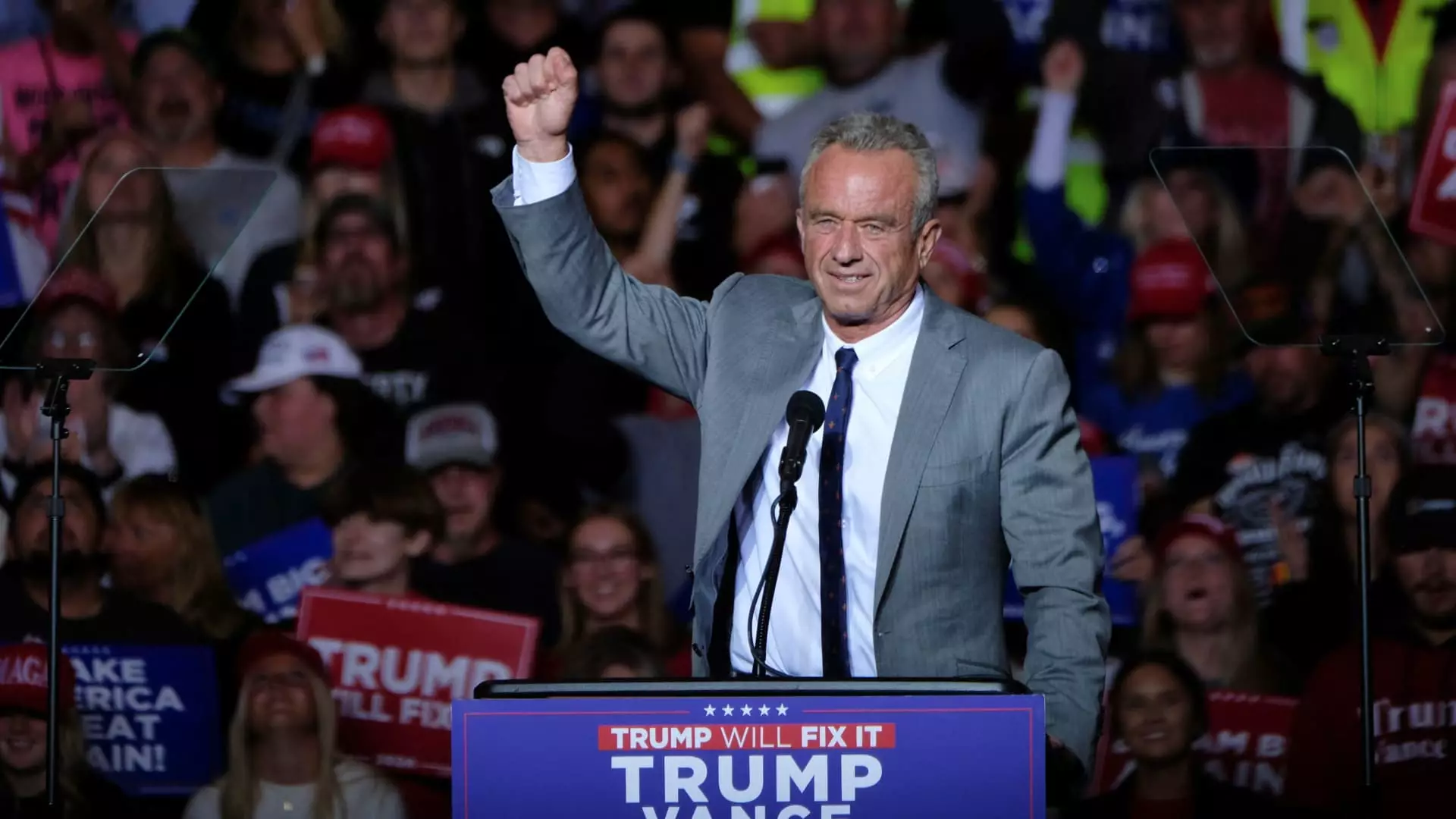The recent trading session saw a noteworthy surge in the shares of dental care supplier Henry Schein, largely influenced by political developments surrounding Robert F. Kennedy Jr.’s anticipated role in a second Trump administration. As the occasion arises for Kennedy to potentially take the helm at the Department of Health and Human Services (HHS), investors are speculating that a significant shift in public health policy could occur, most notably regarding fluoride in the U.S. water system.
The Speculation Surrounding Fluoride Policy Changes
Kennedy has previously expressed a controversial stance regarding fluoride, indicating that his advisement under a Trump presidency might advocate for the removal of this mineral from public water supplies. Historically, fluoride has been acknowledged as a potent preventive measure against cavities, but ongoing debates have emerged surrounding its safety and necessity. This fluctuating perception may lead to a potential void in cavity prevention methods if fluoride is indeed withdrawn from municipal water systems.
The ripple effects of such a policy shift could catalyze a surge in dental visits as consumers would be forced to seek alternative methods of oral care. Firms like Gordon Haskett are voicing their perspectives, projecting that the elimination of fluoride from drinking water could lead to increased dental decay and, therefore, an uptick in demand for professional dental services. The anticipation of these changes has illuminated Henry Schein’s stock, representing not just a singular company but an entire sector poised to benefit if traditional oral hygiene practices are disrupted.
On the heels of this speculation, Henry Schein experienced a nearly 5% gain, marking one of its strongest trading days in recent months. This uptick is noteworthy especially amid a broader context where many health-related stocks have seen declines since the election results. For instance, the Health Care Select Sector SPDR Fund (XLV) fell roughly 3.5% throughout November, reflecting a cautious disposition among investors regarding health policies under the potential leadership of Kennedy.
Another factor influencing market dynamics is the broader scrutiny of health-related companies. With Kennedy’s historical skepticism towards vaccinations, pharmaceutical companies have faced pressures in the market, which in turn has affected the entire healthcare landscape. Conversely, dental stocks like Henry Schein have managed to carve out a niche of resilience amid the volatility experienced by other segments, hinting at how targeted sectors can respond differently to overarching political shifts.
Despite the immediate burst of activity in dental care stocks, analysts, including Gordon Haskett’s head of research, Don Bilson, are cautioning that any regulatory changes would likely take time before they materialize. The intricate and often slow-moving processes of government regulation mean that the potential adjustments to fluoride policy may linger in the realm of speculation for several years. Additionally, it is important to note the distinction between the roles of HHS and the Environmental Protection Agency (EPA), as the latter traditionally oversees drinking water regulations.
Given these complexities, stakeholders should approach current market conditions and projections with a critical eye. The unexpected boom in dental care stocks is a classic example of how investor sentiment can be dramatically swayed by political developments, often detached from a fundamental analysis of company performance or long-term industry trends.
The current climate illustrates a fascinating intersection of health policy and market dynamics, wherein the nomination of a politically contentious figure can uplift certain sectors while straining others. As we observe the unfolding reactions within the dental care market, it becomes crucial for investors to navigate this volatile landscape with discernment. The potential removal of fluoride presents a compelling case study in how public health decisions can resonate through industries beyond immediate healthcare, proving that in the intricate network of the economy, the consequences of political appointments can extend far beyond their initial intent.

